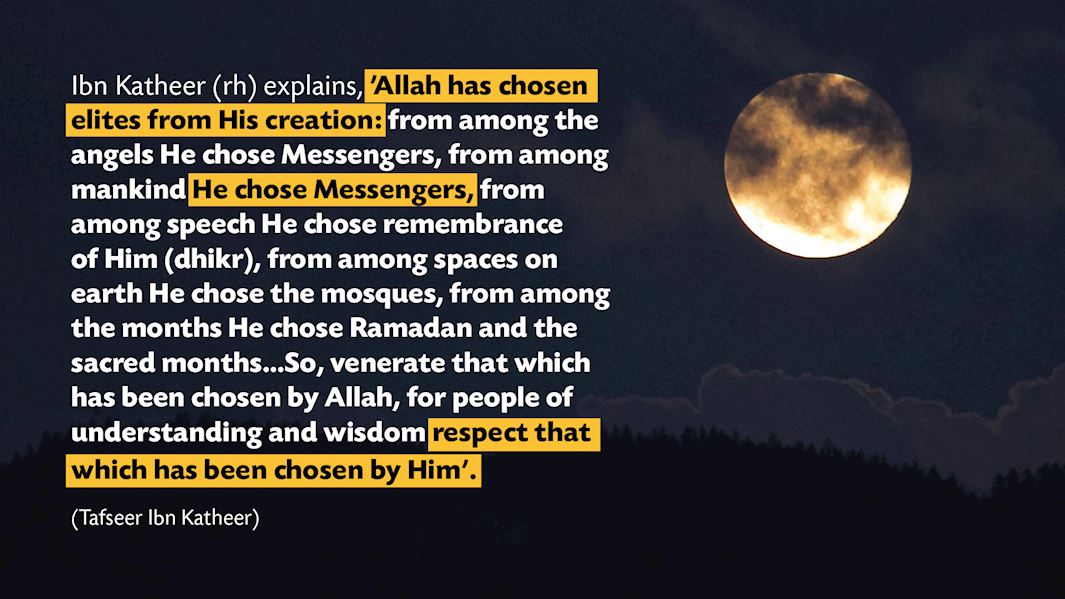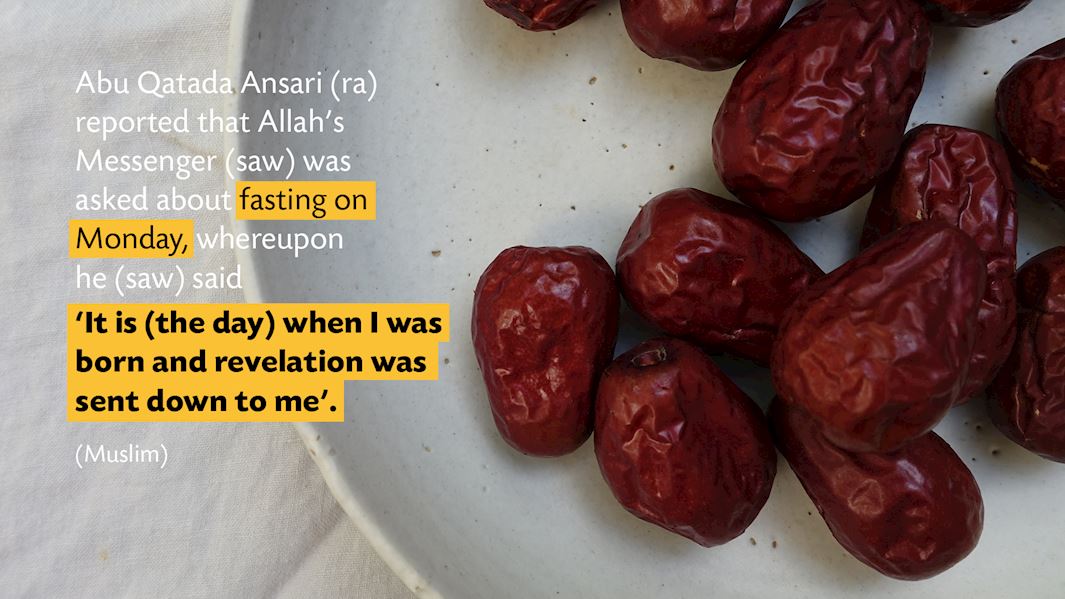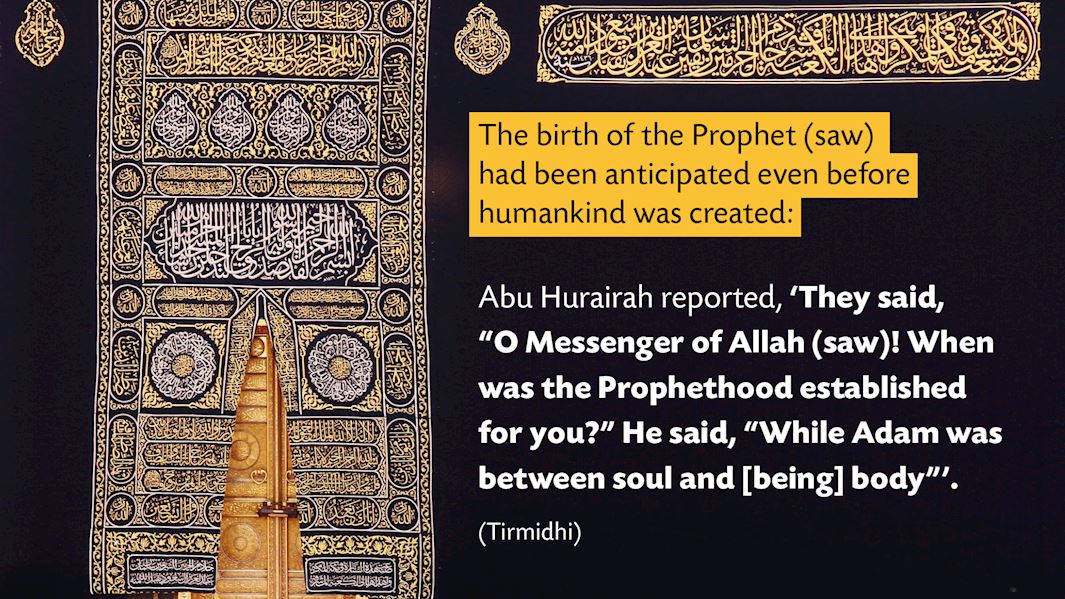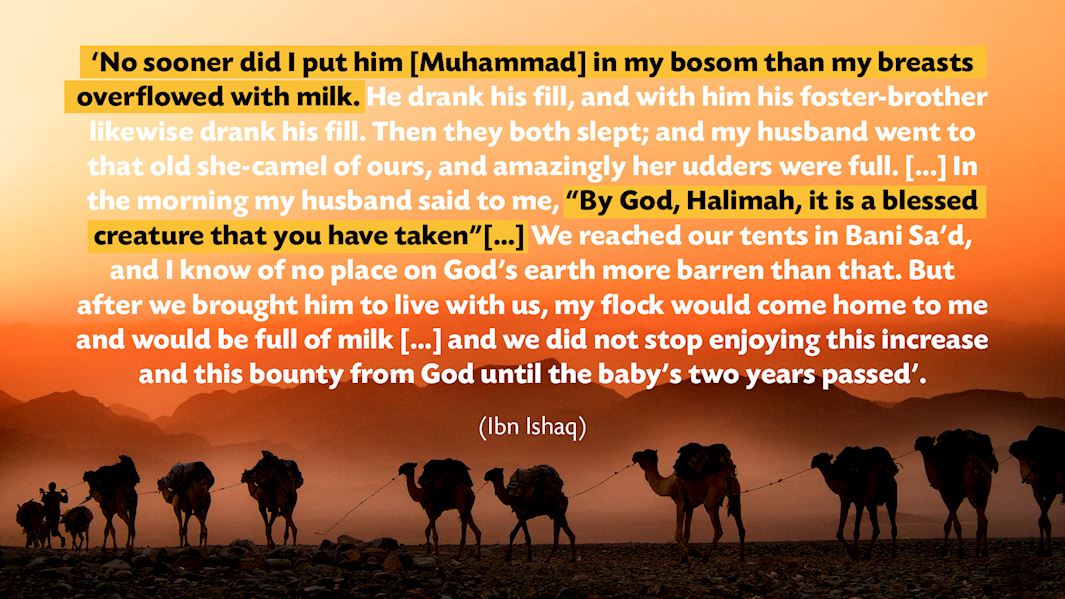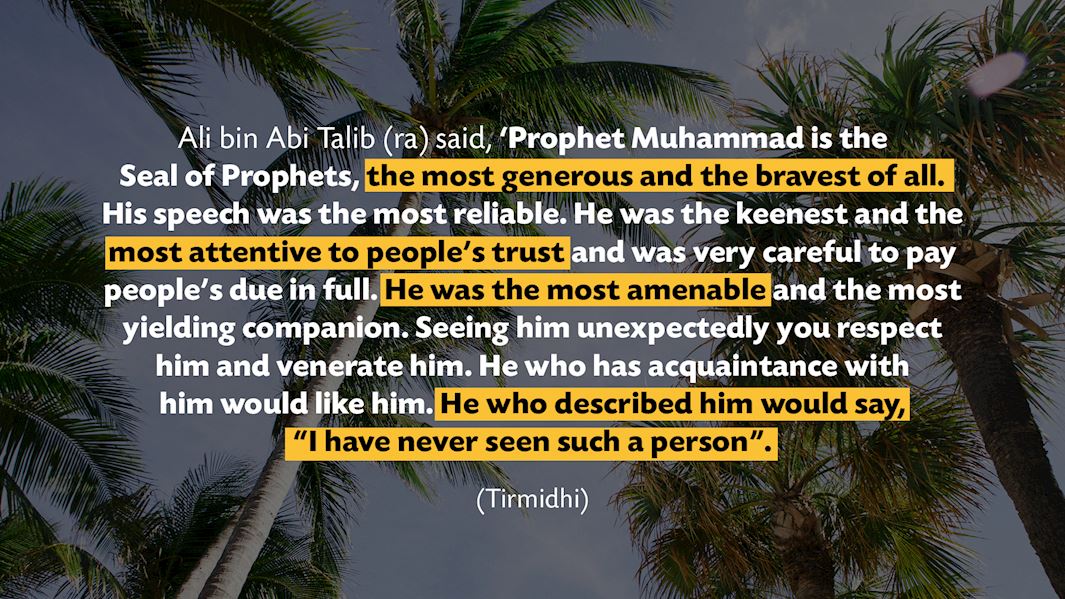Duties of the Month of Muharram
- It is the best of months for general voluntary fasts, after Ramadan.
- It is especially recommended to fast the 10th of Muharram (known as the Day of ‘Ashura), with a day before it or after it. [Ibn Abidin, Radd al-Muhtar, quoting Kasani’s al-Bada`i]
- It is also virtuous to give in charity on this day.
Extracts from Ibn Rajab’s Lataif al-Ma`arif, regarding the month of Muharram:
The Virtues of Fasting in the Month of Muharram and Its First Ten Days
The Prophet ﷺ said, “The best of fasts after the month of Ramadan are in the Month of Allah, which you call Muharram. And the best of prayer after the obligatory prayer is the night prayer.” [Muslim]
This refers to general voluntary fasts according to Imam Ibn Rajab (Allah have mercy on him): These are best in the month of Muharram, just as the best general voluntary prayer is night prayer.
The virtue and honor of this month can be attested to by the fact that the Prophet ﷺ called it “the Month of Allah” (Shahr Allah). Such ascription is only made by Allah to the most special of His creation, such as the ascription of the Prophets Muhammad, Ibrahim, Ishaq, Ya’qub, and others to his slavehood (Allah’s peace and blessings be on them all), and His ascription of the House (Ka’bah) and the camel to himself.
Given that Allah ascribed fasting, between all spiritual works, to Himself [saying “It is Mine”] it was suitable that this month, which is also ascribed to Allah, be selected for this particular form of worship.
Fasting is a secret between the servant and his Lord. This is why Allah, Mighty and Exalted, says, “Every action of the son of Adam is his, except for fasting. It is Mine, and it is I who reward it.” [Bukhari & Muslim]
The Prophet ﷺ also said, “The fasting person has two joys: one when he breaks his fast, and the other when he meets his Lord.” [Muslim]
Night Prayer
As for voluntary night prayer (qiyaam al-layl), it is superior to voluntary prayer during the day because it is closer to secrecy, and nearer to sincerity (ikhlaas).
Allah, Most High, said, “Lo! the vigil of the night is (a time) when impression is more keen and speech more certain.” [Qur’an 73:9]
This is because the time of the night vigil (tahajjud) is the best of times for voluntary prayer, and the closest a servant gets to his Lord. It is a time when the doors of the skies are opened, supplications answered, and needs fulfilled.
Allah Most High has praised those who wake up at night in His remembrance, supplication, seeking forgiveness, and intimate entreating (munajat), saying, “Who forsake their beds to cry unto their Lord in fear and hope, and spend of that We have bestowed on them. No soul knows what is kept hid for them of joy, as a reward for what they used to do.” [Qur’an 32:16-17]
And, “Or he who pays adoration in the watches of the night, prostrate and standing, bewaring of the Hereafter and hoping for the mercy of his Lord? Say: Are those who know equal with those who know not? But only those of understanding will pay heed.” [Qur’an 39:9]
And He said to His Prophet ﷺ, “And some part of the night awake for it, as voluntary worship for you. It may be that thy Lord will raise thee to a praised estate.” [Qur’an, 17:79]
It has been said that those who worship at night will enter Paradise without reckoning, and that standing in night prayer shortens the length of one’s standing on the Day of Judgment.
This is why the Prophet ﷺ said, “Stick to night prayer, for it was the way of the righteous before you. Night prayer is a means of closeness to Allah Most High, of expiating for bad deeds, avoiding sins, and keeping away illness from one’s body.” [Tirmidhi]
Similarly, it has been related that fasting is a means for good health. The Prophet ﷺ is reported to have said, “Fast, and you shall have good health.” [Ahmad]
Lovers have no time more joyous than when they are alone in entreating their Beloved. This is the healing for their hearts, and the great thing that they could long for.
This is why Abu Sulayman al-Darani would say, “The people of the night find more joy than the people of distraction (lahw) in their distractions. Were it not for the night, I would not like to remain living.”
The Day of ‘Ashura: The Tenth of Muharram
Ibn Abbas (Allah be pleased with him) was asked about fasting the Day of ‘Ashura [10th of Muharram]. He said, “I did not see the Messenger of Allah ﷺ fast a day while more avid to seek its virtue than this day,” [meaning the Day of ‘Ashura]. [Bukhari & Muslim]
The Day of ‘Ashura has great virtue, and tremendous sanctity (hurma). The virtue of fasting was known among the Prophets (peace be upon them all). Both Prophet Nuh and Prophet Musa (peace be upon them both) fasted it.
The Prophet ﷺ used to fast this day even in Makkah, though he had not yet ordered others to do so, as mentioned in both Bukhari and Muslim. [Bukhari & Muslim]
When he migrated to Madinah, and found the People of the Book fasting this day and venerating it, he ordered the Muslims to fast it, and encouraged it so much that even the children would fast it.
Ibn Abbas (Allah be pleased with him) said that when the Messenger of Allah ﷺ reached Madinah, he found the Jews fasting the Day of ‘Ashura, so he asked them, “What is this day you are fasting?” They said, “This is a tremendous day. Allah saved Musa and his people on this day and drowned Pharaoh and his people. Musa fasted it out of thanks, so we fast it too.” The Messenger of Allah ﷺ said, “And we are more deserving of Musa than you are.” So he fasted this day, and ordered that it be fasted. [Bukhari & Muslim]
At the end of his life, the Messenger of Allah ﷺ made the determination not to fast this day alone, but with another day [either before or after it], in order to be different from the People of the Book.
Ibn Abbas (Allah be pleased with him) said, “When the Messenger of Allah ﷺ fasted the Day of ‘Ashura and ordered his companions to fast it, they said, ‘O Messenger of Allah! This is a day that the Jews and Christians venerate.’ So the Messenger of Allah ﷺ said, ‘When next year comes – if Allah wills – we will fast the Ninth [of Muharram with it].’ But the next year did not come before the Messenger of Allah ﷺ passed away.” [Muslim & Abu Dawud]
The Prophet ﷺ said, “Fast the Day of ‘Ashura and be different from the Jews by fasting a day before it or a day after it.” [Ahmad]
Giving in Charity on the Day of ‘Ashura
It has been reported from Abd Allah ibn ‘Amr ibn al-‘As (Allah be pleased with him), that “Whoever fasts ‘Ashura, it is as if he has fasted the entire year. And whoever gives charity this day it is like the charity of an entire year.”
Some of the Virtues of the Day of ‘Ashura
It is a day in which Allah forgave an entire people. The Prophet ﷺ said to a man, “If you want to fast a month after Ramadan, then fast Muharram, for it has a day in which Allah forgave an entire people, and He turns to others in repentance in.” [Tirmidhi]
Source: SeekersGuidance

